#languagelearning
Photo
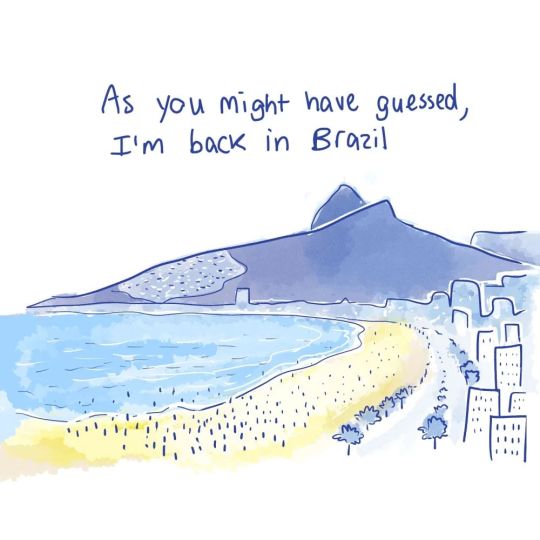
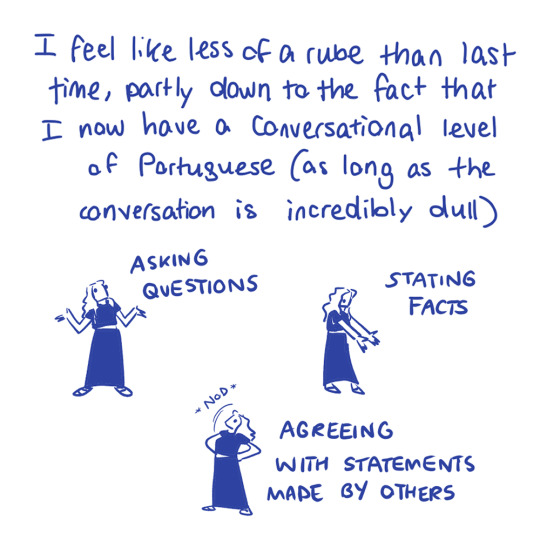
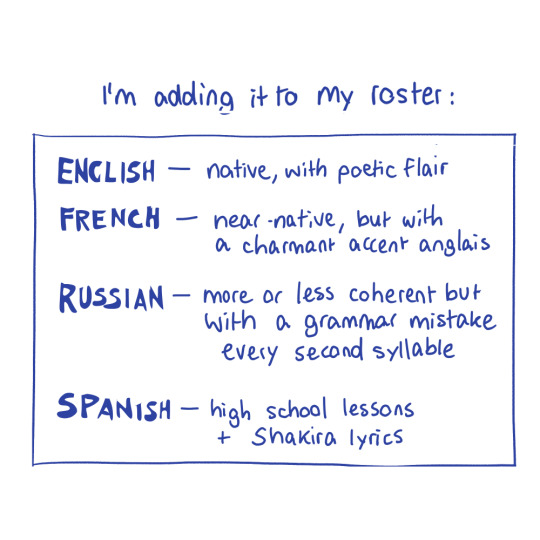

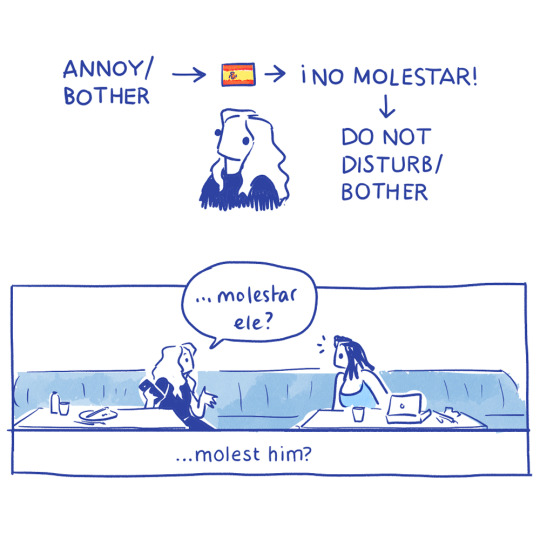
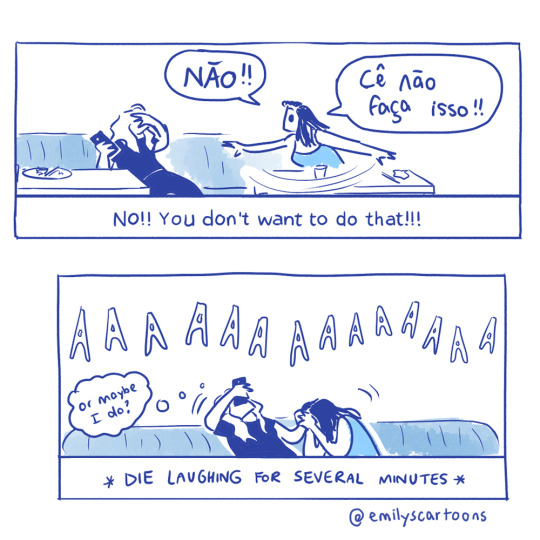
Brazil we are BACK 🌴🐷🌴
This is an excerpt from my new long Patreon comic - you can sign up for just $2 to read the whole thing and many more 😘 link below & in highlights, beijinhooooos xxxxx
http://patreon.com/emilyscartoons
592 notes
·
View notes
Photo

Email like a boss
#LanguageLearning#LearnLanguages#Polyglot#SpeakFluent#LanguageLearner#LanguageGoals#LanguageJourney#LanguageExchange#LearnWithMe#Linguistics#LanguageTips#LanguageNerd#BilingualLife#LanguageChallenge#LanguageStudy#LanguageCommunity#FluentInDays#LanguageTeacher#LearnAndGrow#LanguageAcquisition#LearnersOfInstagram#PolyglotCommunity#LanguageResources#LanguageEnthusiast#LanguageMemes#SpeakLikeANative#LanguagePodcasts#LanguageBooks#LanguageLearningTips#LanguageInspiration
85 notes
·
View notes
Text
How I read and enjoy books in my target language
Please note that I write about what works for me and share advice based on my own experiences. If you have a different opinion or if you use other methods, that's absolutely fine. Do whatever works for you.
Since some people asked me how I read books in my target languages, I would like to describe my way of reading in this post. I focus on reading for some time now and I'm very happy with my progress so far. This doesn't mean that I won't change a few things in the future (I'm constantly gaining experience and changing my learning style accordingly).
1. Choosing a book
Before I start reading, I have to choose an appropriate book, obviously. After trial and error I realized how important this step is. My ideal book is:
not too easy (I won't learn much)
not too difficult (if I can't follow at least the rough story I won't enjoy it)
interesting (motivation to read it)
I try to choose a book that is slightly above my level so that I can follow the story without looking up too many words but also learn new words. I don't need to understand everything, but I don't want to feel lost either. Balance is important.
2. Trying the first chapter
After choosing a book that seems to be appropriate, I try to read the first chapter (and sometimes the first two chapters, if they are short). I pay attention to things like:
Can I follow the story?
Is the story interesting?
Do I like the writing style?
If I can answer (most) questions like these with "yes", I continue reading the book.
Do I only understand single words or sentences here and there? Do I have no clue what happens? Then I put the book aside for now and choose an easier one. There's no shame in admitting that this book is too difficult at the moment. Deciding what I don't read is just as important as deciding what I read.
3. Reading
If the level of difficulty is okay, I start reading the book. In my experience, the first few chapters are always the hardest. I need time to get used to the writing style, the used vocabulary and the story.
In the case of the japanese version of Harry Potter, the beginning was difficult because of the writing style. But after two chapters, I began to enjoy the story and so I continued. That's why I always try to read at least the first chapter. A book that seems difficult in the beginning can be very enjoyable once I've read enough pages.
When I come across an interesting word or a sentence I like, I highlight it. I try to not highlight too much stuff, though. Two, maybe three words per page is usually my maximum. Enjoying the story is my number one priority. I can read several pages without highlighting anything, even though there are words I don't know. As long as I don't feel the strong urge to look up a word, I just continue reading.
In many cases I can understand words from context and learn them over time just by seeing them again and again. That's why I don't look up words immediately. I wait to see if they come up more often.

After I finished one chapter, I look up all highlighted words and read the passages that contain these words a second time. This way, I can connect the meaning with the full context. I don't try to memorize the word; I just try to understand it in this particular context before I continue.
Most of the time, I learn words unconsciously. If the book is easy enough, it's not so difficult to guess the meaning of certain words. While reading, I don't focus so much on words I don't know. I just focus on following the story. I may not always understand every detail, but as long as I can follow and enjoy the story, everything is fine. I learn so much by engaging with the language in a meaningful way and enjoying the content. Sometimes, I even forget that I am reading a book in a foreign language!
I have to add, that I'm already familiar with basic sentence patterns and that I have experience with reading books in my target languages. I finished the book "Remembering the Kanji" which makes it easier to guess the meaning of words. Knowing lots of kanji is a great advantage.
I have still a long way to go, of course, but this natural way of learning vocabulary may not work well at very early stages because you need a foundation first. After you are familiar with the dialogues and example sentences in your textbook, graded readers are a good choice in my opinion. Graded readers can make the transition from textbooks to easy books aimed at (young) native speakers easier.
Tip: One thing that helped me is to take a card, write down words I looked up and put this card into the book. When I read it a second time, I don't need to look them up again. Reading texts more than once can help to get more familiar with new words. Plus, writing helps me to remember words better. Reviewing them in their original context is much more enjoyable to me than reviewing them with flashcards. In the picture below you can see how my cards look like:

4. Enjoy!
I made enjoying books my number one priority. This is what helped me to make much more progress than before. All I need is enough reading material at the right level and a dictionary. As soon as I get absorbed in a book, I don't think about learning a language. I just want to enjoy the story. The more experience I gain, the better I become at understanding the language as a result. There's no need to force it or to hurry.
What I like about just enjoying a book and learning words naturally is that it's so simple. I don't necessarily need my computer, a certain software, add-ons, ... All I need is something I can read. After reading a chapter, I only look up a few words as I described above and that's it. Then, I often feel so motivated that I want to read more. I read much more than before because I enjoy it so much.
514 notes
·
View notes
Text
GROMSKO - A Pronunciation Guide
Suave Sobiesław (It rhymes. Get it?)
Sobiesław - Soa - Beh- swav
O like Oat. ł is a W like Web. W is pronounced as a V sound.
Kosciuszko - KOSh-CHews-skO
Kos like Gossip.
C iu-s like Check and Useless with a partially voiced S/Z.
Sko like Go.
Notes:
Voiced and unvoiced referring to how involved your vocal cords are. A good way to understand this is try switching between F - V and S - Z.
V in many central and eastern European countries sometimes sounds like a 'voiced F' .
(I will not be making an accent/speech guide as I have for König as I don't speak Polish and feel it's not my place. If you are Polish and have any feedback or would like to help me work on such a post feel free to reach out.)
"ZA HONOR I OJCZYZNĘ!"
Now go, be free, have fun with everybody's favourite beefy Polak.
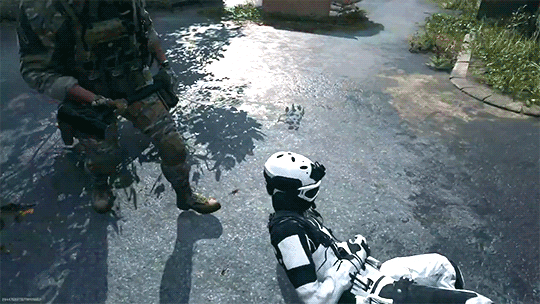
#Fr tho what are they feeding him?#gromsko#How can I get that chunky 👀#sobiesław kościuszko#His Bubcia feeding him plenty of Kiełbasa and Pączki for sure#'MASTER OF STEALTH' with a sledgehammer and an RPG#He's just built different#linguistics#call of duty#cod modern warfare#polish language#specgru#cod mw2#languagelearning#pronounciation#loth-moth resources#sobieslaw gromsko kościuszko#Polski#langblr
89 notes
·
View notes
Text
My top Russian Tv-Shows
Despite this being mainly a mandarinblr, I still try to practise my other languages so here are some of the most interesting tv-shows in russian for my fellow russian-learners and speakers and anyone interested.
Kitchen - Кухня
This show has several spin-offs including Hotel Eleon and Grand which I will not mention as by the end of the last spin-off there are literally no characters from the original cast and the plot slightly goes of the rails.
The actual show is set a french restaurant in Moscow where Max Lavrov, who just finished his military service decided to work at. The show follows the various challenges that Max faces at his new workplace, including the foul-tempered but very talented Chef Viktor Barinov who has a drinking problem and other interesting characters. It's quite funny and heart-warming, and it's a must-watch imo.
Youth - Молодёжка
A pretty standard sports series tv plot. The hockey-team "Bears" are a meh team at best, but that all changes when a former National Hockey League player turned coach shows up to make a proper team out of them. I only watched the first season because after that the plot got a tad boring for me, but as far as sports series go, pretty good.
Law of the Lawless (Not the 1964 film!) - Бриг��да
A cult-classic staple of only 15 episodes. The plot is a bit over the place at the beginning, as opening episodes sequence is a flashback to the start of the final episode but after that it's chronological, with the first episode w english subtitles here. 4 best friends start out as youths from early 1990s to 2000s, with one returning home after finishing his army service with plans for uni and the others just starting their lives. However, the Perestroika had significantly changed their lives, so eventually the gang turns from racketeering and petty crime to slowly becoming the mafia. The opening theme is worth watching alone, but then again I'm biased.
How I became Russian - Как я стал русским
This comedy show is quite dear to me, as it follows an American journalist with russian and slavic roots navigating life and work in Russia as he works on a story about life in Russia for a major newspaper back home. He's back in his homeland but as a foreigner who finds his heritage utterly confusing.
This series resonates with me, as despite having a good grasp of my cultures languages and customs, I still feel disconnected from my heritage at times, and this show has been a reassuring reminder that not being 100% attuned with your heritage is okay, and that there are many different ways of re-connecting with your culture.
Closed school - Закрытая Школа I was slightly tramuatized by this show when I first watched it 4ish years ago, in part due to how unhinged and off the rails the plot slowly but surely becomes. A descent into madness. Andrei and his sister are sent to study at the Logos boarding school, but are then informed that their parents have perished. Andrei doesn't believe this, so he sets off to investigate with his new friends and investigate he does. There are also some other background shenanigans going on, but the unraveling of the schools mystery remains the main interest, including its odd passageways and deeply disturbing history. As a thriller series, it honestly deserves that title.
Here are some shows that came out more recently that I think deserve a mention.
The Boy's Word: Blood on the Asphalt- Слова пацана кровь на осфальте
I've only seen a few episodes out of the 8, but it's very Brigada-esque so far. During the mid-late 1980s when Perestroika is going on and the USSR is soon to be no more, 14 year old Andrei is trying to survive as he's constantly bullied at school and by gang-members. He makes friends with one of said gang members Marat, as he slowly descends into the world of street life. I'll finish watching this series sometime probably.
The new guy - Новенький 16-year old Max moves from his glamorous life in Moscow to a small-town Yurovsk due to his parents constant arguing, where he immediately doesn't get along with his clasmmates who think him stuck-up and start bullying him. One day Max goes missing and his classmates are the obvious suspects, as slowly but surely secrets start to emerge revealing everyone's lies. A pretty good suspense/thriller show, which covers the topics of bullying, coming of age and what it means to be an adult pretty well, despite the 4th and final season being kind of lackluster.
Central Russia's Vampires - Вампиры средней полосы
Where to even begin with this show. I don't know whether I should introduce the trailer or the opening theme song mv. Basically the life of a small and unconventional vampire family living in Smolensk, presumably in central Russia, who get disturbed when bodies with distinct bite marks are found nearby. This results in the Guardians (aka the guys keeping vampires a secret and ensuring that no one acts out) taking over and investigating with the vampire leader Svyatoslav Vernidubovich given a week to find and punish the culprit. My odd plot description aside, the cast is why I adore this show. The recently turned Gen-Z wannabe blogger Zhenyok, the thousand year old grandpa Svyatoslav, the constantly annoyed Dr. Zhan Ivanovich (who is actually french and decided to hang around after Napoleon was defeated) and his ex-wife The Countess who honestly should have a spin-off show and many more characters.
Doomsday - Конец Света
Satan decides to come back to Earth and start the apocalypse, for which he needs his son Dimyan who should become the Antichrist but to his dismay, Dimyan doesn't really care about world domination and money, he just wants to get married to his fiancee Galya and live happily ever after. Chaos ensues as satan tries to persuade Dimyan to join him, whilst Angel vs Demon shenanigans occur in the background. I honestly had no idea that this type of show could even be produced due to the censors and yet it was.
It's kind of slightly similar to Good Omens with all the apocalypse stuff and the Angels and Demons eventually teaming up? Good Omens adjacent. Except more gritty with much darker humour. The actor who plays satan is Yuri Kolokolnikov who actually starred in game of thrones so if you're a fan of his acting, do try this show.
Alisa can't wait - Алиса не может ждать
Alisa is a 15-16 (don't remember her exact age) year old girl who is going blind and she decides to do something really drastic to ensure that her life will be comfortable after she loses all sight. There's a noticeable build-up to what she's actually planning during the episodes, as her homelife is less than ideal, with her older sister stuck in an unhappy marriage and a turbulent relationship with her parents.
This is one of the few shows that really left a deep impression on me but it deals with some very sensitive and potentially upsetting topics so be aware if you're giving it a go.
This list may be updated in the future, so if there are any other shows that I may have missed do share them!
#studyblr#russian#college life#tv#tv series#study blog#student#student life#travel blog#study motivation#aesthetic#slavic roots western mind#college#languagelearning#language#language stuff#language blr#language blog#tv shows#russian tv#russian tv shows#russian tv series#soviet movies#ussr#soviet#brigada#kitchen#Кухня#vampires#thriller
44 notes
·
View notes
Text
Emotional Intelligence in Translation
Hey everyone!
I am a student finishing my second year of Master's Degree, and I'm currently writing a thesis on the role of Emotional Intelligence in translation. It's a subject that has been brought up more and more in the field lately and I wanted to explore how beneficial it could be to add courses centered around the improvement of Emotional Intelligence in translation studies (especially since, with the rise of AI, emotional intelligence is one of the main aspects that adds value to our work).
I have created a survey for this thesis and am currently looking for translators who are still in the midst of their translation studies, or who have been in the translation market for less than 2 years. The survey takes five minutes, and I would be immensely grateful if some people here had time to take it!
Here is the link: https://forms.gle/H8tvBMD12MiMFeueA
Many, many, countless thanks to anyone who will take time to fill it out, and feel free to share it with anyone who fits the profile!
#translation#translator#lingblr#langblr#linguistics#linguist#language#bilingual#xl8#languagelearning#translation studies#traduction#traducteur#student
88 notes
·
View notes
Text
Idiom of the day: мозги набекрень
мозги набекрень /mɐzˈɡʲi nəbʲɪˈkrʲenʲ/ -- (lit: one's brain is askew), insane, out of one's mind
Я пытаюсь заполнить налоговую декларацию, у меня уже мозги набекрень! I'm trying to fill out a tax return, my head is about to explode!

Learn more hilarious brain-related idioms, from "wiggling your convolutions" to having your brain "powdered" in my new post on Patreon. These expressions will have you saying the right thing and laughing while you learn. Full post with explanations and FREE downloadable vocabulary cards: here
24 notes
·
View notes
Text

'Simple' is complicated in Finnish. 🙃
#mondly#MondlybyPearson#languages#languagelearning#didyouknow#learnlanguages#languagestudy#languagelove#learnonline#languagelover#languageschool#languageapp#english#french#dutch#romanian#finnish#simple#complicated
81 notes
·
View notes
Text
6 ways learning a language as an adult is different than learning it in school, courtesy of Babbel magazine:
20 notes
·
View notes
Text
Some quick thoughts on Kanji mnemonics
This is just an opinion.
When your native language is English and you are learning Japanese, there are some conceptual hurdles to overcome. One big one is Kanji, how to approach it, when the right time is, the best review methods etc etc. For this reason it took me some time to figure out how to process Kanji from learning a new character to effectively reviewing it.
RTK or "Remembering The Kanji" is an influential work that has clearly affected the kanji learning praxis in large parts of the Japanese language learning community. I have not read this book but I know that it ask the reader to come up with long mnemonics to help remember kanji.
Firstly, I agree that mnemonics are probably the best way to remember all the details you need to know. What I don't agree with however is having really long mnemonics, because the longer the mnemonics the harder it is to remember. I have seen people suggest writing paragraphs for one kanji.
Personally I think a mnemonic should be as short as possible and include the 3 main pillars of a kanji character
The meaning in English
Kunyomi pronunciation/s
Onyomi pronunciation/s
Stroke order is a whole other beast but at its core these are the aspects of a kanji character that you need to know before you can say you "know it".
So to me the ideal mnemonic is taking these 3 aspects and fitting them into one short sentence if possible. Lets take the kanji for 1, "一"
The meaning in English: One
Kunyomi pronunciation/s: ひと (hi to)
Onyomi pronunciation/s: : イチ( i chi)
So for this example the mnemonic I use is :
"One day HE TOld me to EAt CHEEse"
It takes some creativity sometimes to fit it into something coherent but the effort is worth it because this one mnemonic builds on your understanding of multiple aspects and is easy to remember/access in your mind.
The mnemonic allows me to reason through the kanji so I make those repetitive associations that eventually make the mnemonic unnecessary.
My whole point is just that I think mnemonics should be short sweet and to the point, highlighting the 3 main pillars of a kanji character, and not a multi-sentence story paragraph that takes too long to write or remember.
26 notes
·
View notes
Photo
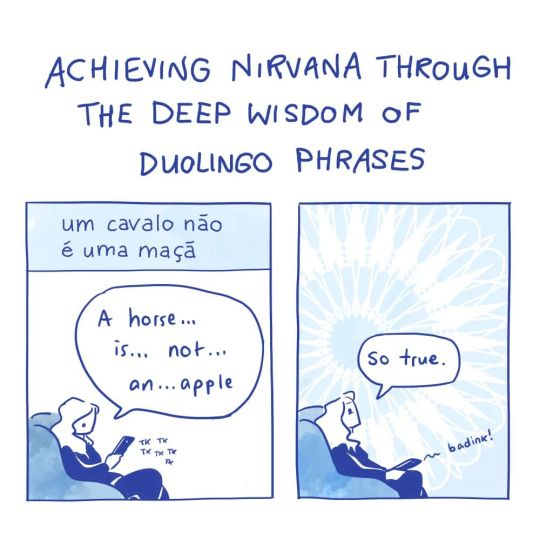
Who else is back on the Owl App 🦉🌌
1K notes
·
View notes
Video
Follow!
#shorts#comedy#skit#funny#english#learnenglish#LanguageLearning#LearnLanguages#Polyglot#SpeakFluent#LanguageLearner#LanguageGoals#LanguageJourney#LanguageExchange#LearnWithMe#Linguistics#LanguageTips#LanguageNerd#BilingualLife#LanguageChallenge#LanguageStudy#LanguageCommunity#FluentInDays#LanguageTeacher#LearnAndGrow#LanguageAcquisition#LearnersOfInstagram#PolyglotCommunity#LanguageResources#LanguageEnthusiast
10 notes
·
View notes
Text
February roundup - Russian
Years ago, I started learning Russian. I bought novels in Russian and a textbook. But this textbook wasn't really beginner-friendly. In every new lesson, the dialogue contained many new words but only few words from the previous lessons. The author probably wanted the learner to study the whole vocabulary list before going on but I didn't like this approach. After only a few lessons I felt too overwhelmed and decided to focus on Japanese instead.
On February 13th, I tried it again and now I'm much more optimistic. I gained more experience as a language learner through Japanese and can use that now with Russian. Plus, I discovered the Refold Russian server on discord which is a very helpful place for finding resources and guidance.
I want to reach a point at where I can understand the novels in Russian that are waiting on my shelf.
In this post I want to share what I did so far, which resources I used and my thoughts. I think I'll post one update every month.
(YouTube) Comprehensible Russian: Zero Beginner (watched: 38 of 75 videos)
Easy to understand even for absolute beginners. The first 10 or 15 videos are very easy with lots of repetition. After around 15 videos the complexity slowly increases.
Assimil (Lesson 1 - 10)
Compared to the textbook I used years ago, Assimil introduces the language in a much more beginner-friendly manner. I like it so far.
(Anki) Russian starter deck (this one)
This deck was recommended in the Refold Russian server on discord. It starts with simple sentences and contains lots of explanations. I did 10 new cards per day.
Short Stories in Russian for Beginners by Olly Richards (Story 1 - Story 3)
I looked up many words, but the stories are not too complicated. They introduce many common words and repeat them regularly in their stories, which helps to get used to them. I tried to listen to the audio book while reading but it’s too fast at my current level, so I focused on reading for now.
This book is aimed at beginners but I think it's difficult for complete beginners like me. Ideally, you are already familiar with basic vocabulary before reading this book. Otherwise, you have to look up almost every word (like me). However, after reading two stories, I noticed that recognizing and understanding words became a bit easier (in the beginning, all new words looked somewhat the same). It's hard if you start almost from zero like me, but it's possible and you'll make progress.
(YouTube) Different Let's Plays
I watched a few videos of Russian native speakers who are playing games I'm interested in. Like Animal Crossing or Метро: Исход. They are too difficult for now, but they are also motivating and make me want to keep going.
(YouTube) Easy Russian
Too difficult for now, but I really like their videos. They have subtitles in Russian and English, their topics are interesting and the people from Easy Russian do a great job.
(YouTube) Russian with Max
It’s too difficult at the moment but I like his vlog videos so far. He visits many different places and explains a lot and there are subtitles which is great. I started to look up words from one video.
(YouTube) Video about pronunciation from RussianPod 101 (this one)
I liked this video. It's well-structured and not too fast so that you can comfortably follow along.
...
These are the things I did in Russian in February! I feel like I already learned much more than during my previous attempt, but I'm still at the very beginning of course. I'll post another update at the end of the month.
#langblr#languagelearning#languageblr#self study#language learning#study russian#learning russian#russian language#language study
20 notes
·
View notes
Text
König - Canon
Speech and Accent in Canon
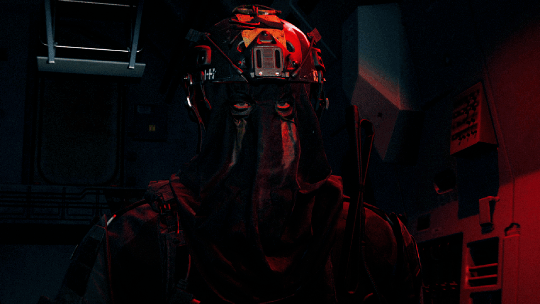
A quick note to start off; as König speaks a Standard High German in game I will be focusing primarily on that. ( For further context on why German sounds the way it does I may make a future post about German and Austrian Speech with some examples and context - I will link it when I do.) Just know the German alphabet is pronounced slightly differently than English and varies from dialect to dialect.
Lets start with the most important - König (kö·nich)
Ö - being pronounced somewhere between spoon and flute.
Ch - being similar an extended h- .
Know that peoples accents will vary depending on their proficiency and origins. From his voice lines his accent and phonetics -
His English is clear on his D and W. I know that D = Z/S and W = V are common confusions for some German-English speakers and I understand that they're an easier way to convey such an accent in writing but they don't apply here.
Notable accent quirks he does exhibit are;
Over annunciation of H like in "veHicle'
"DZ Marked" - 'Dae Zet Markt' - this should only come up when pronouncing these letters individually.
The German R is pronounced as a trill made at the back of the throat and he does this often.
Occasionally he will drop and -er to a lighter -ah and a th- to a more natural d-.
"Giergah Here" - " Enemies in die AO"
He does frequently use short/voiceless endings where words ending in D/ED get dropped short and sound closer to a T.
"Enemy Downt" - "Enemy Markt"
Though he does not seem to do this for voiced S endings: EYES = ICE.
Contractions (words like "We're" and "It's") are just as common in German as in English but do not have any common forms for "I am" or "it is" and this usually will carry over to English where some German speakers will not use "I'm" or "it's"
König does use 'is' contractions like "the door's jammed".
He switches between "I'll take the armour" "I Will take the key-card" in casual language so either works.
Any other German Dialect speakers feel free to contribute or reach out to me if you have any insight or would like me to add or adjust anything. I would also love to hear your insight and experiences for a German - Austrian Language and Culture post I've been working on.
QP Multiplayer Voicelines
Canon Appearance and Biography
Height, Age, Rank and Affiliation
Anxiety and Personality*
#Loth-Moth Resources#cod mwii#kortac#könig#cod mw2#call of duty#cod modern warfare#linguistics#languagelearning#deutsch#german language#austrian german#Österreichisches Deutsch#Österreich
29 notes
·
View notes
Text
How to find a language partner
Regardless of whether you're learning for fun, to boost your career, to get in touch with your culture, or for travel, you'll definitely need a language partner at some point, mainly for speaking practise.
You can repeat the same textbook dialogue all you want, but unless you actually practise what you learn with someone else, whether it's a native speaker, your grandmother or your classmate, achieving a near perfect or fluent level will be really difficult.
Here are my top suggestions for finding a language partner!
1. Your local language Institute
The German Geothe Institute, or the Mandarin Confucius Institute or any other Centre - they all usually hold mixers and get-to-knows, so attending one of their events is a great way of meeting fellow language learners and native speakers, who you can study with, and become friends with.
You don't necessarily need to be a member or a student of these organizations, but its always a good idea to check as different countries and regions may have their own specifications.
2. Use apps
Tandem, HelloTalk etc. Pretty decent way of meeting native speakers who want to learn your language, so it works out quite well.
The downside is that online platforms can be full of creepy people that will often derail the conversation into something unexpectedly inappropriate , so stay safe out there.
3. Your university or school clubs
Many unis have language or cultural clubs, so ask around to see if there's a club out there for your target learning language. You can learn quite a lot, and not just the language, but also about recepies, lesser known customs etc. Quite an amazing option, so try it out.
If not, chances are there might be a group in your city, so check out the Facebook groups. There's probably something out there.
4. Friend of a friend of a friend chain
That's the beauty of connections. Your friends cousin might be friends with a native speaker of the language you're learning, who's studying in the same city as you are.
Don't be afraid to reach out, or to ask your friend to pass along your request. If it doesn't work out, then hey. There are always going to be opportunities, so don't stress it.
#language blr#student#aesthetic#studyblr#chinese#slavic roots western mind#japanese#korean#vietnamese#mandarin#french#german#spanish#danish#latin#languagelearning#russian#mandarin langblr
43 notes
·
View notes
Text
I decided to study foreign languages because I love literature, and I wanted to see with my own eyes, without the interposition of the translator, how the authors of my favourite books really felt. I wished to read those emotions directly from the source.
However, now that I try to put on paper and ink how I feel, I realise that nothing we read is devoid of translation and that when I try to convey my feelings via words lots of things get lost in translation.
And I wonder if it's always like this or if it's because I myself am not able to read with a clear mind my own emotions.
#53/365#literature#translated literature#translation#translator#foreign languages#languagelearning#tmd2k23#365daysofwriting#diary entry#random toughts#personal diary#tumblr diary#tmdwriting
30 notes
·
View notes